Scores of starving brown pelicans found on Southern California beaches
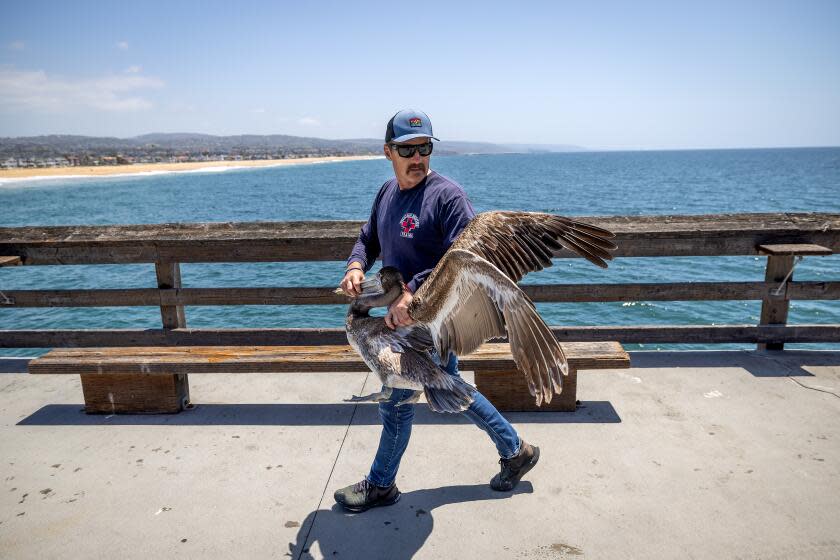
Scores of emaciated brown pelicans, too weak to fly, have been found on Southern California beaches in the last month and taken to an Orange County rescue center, according to its director.
“We’re getting dozens of calls,” Debbie McGuire, executive director of the Wetlands and Wildlife Care Center in Huntington Beach, said on Saturday. “People are finding them in parking lots and their backyards.”
The rescued pelicans, she said, “are coming in at half their body weight. They are also very anemic.”
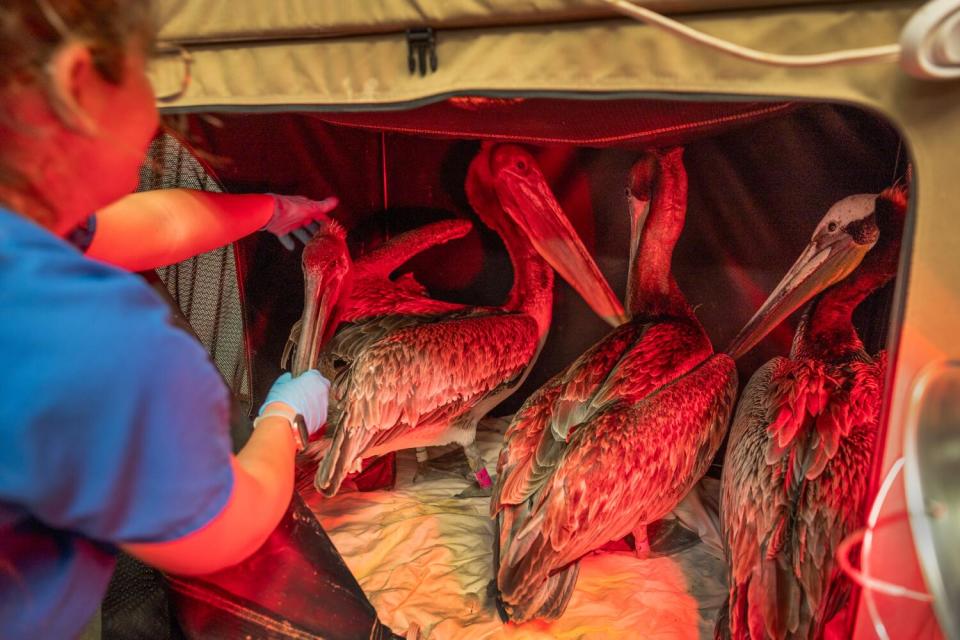
So far, she said, it’s unclear why the pelicans, which feed on anchovies, sardines and mackerel, are suffering from malnutrition.
McGuire said that she contacted scientists at the National Oceanic and Atmospheric Administration last week, who told her that there was “plenty of bait out there” for the birds to feed on.
“We don’t know the cause,” she said. “They are just all starving.”
Overwhelmed by the number of ailing birds, the wildlife center has been erecting pup tents to use as pens, she said.
In the last month, the center has taken in 89 brown pelicans, many of them quickly dying, McGuire said. More than 30 have survived, she said, as the center warmed them under heat lamps and gave them fluids.
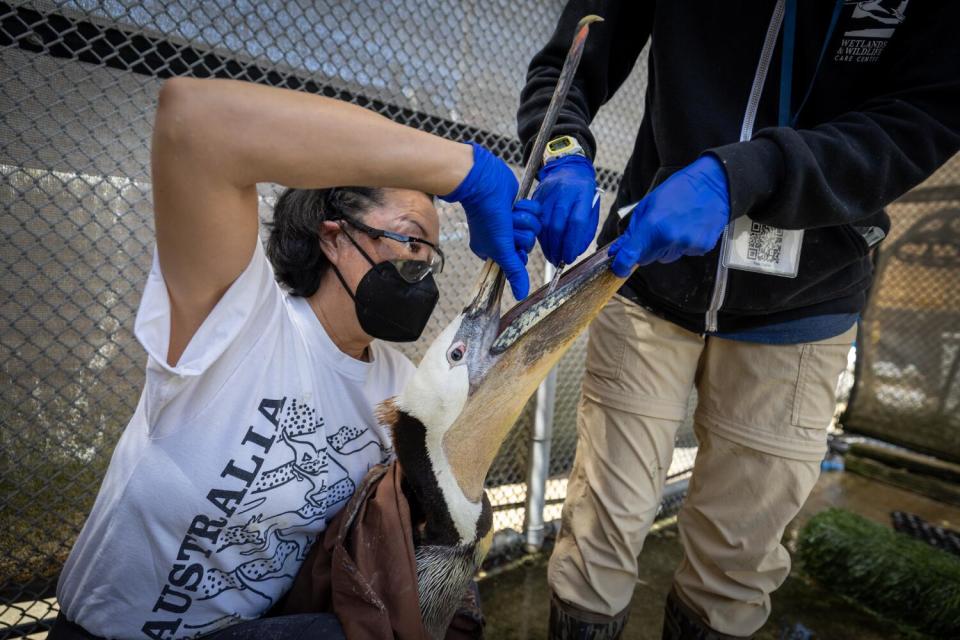
She said the center sent tissue samples from the birds to labs for testing.
A similar spike in the stranding of brown pelicans up and down the California coast occurred in the spring of 2022. The cause has not been found.
The California brown pelican was listed as an endangered species decades ago after the spread of the chemical DDT caused the shells of their eggs to thin. The eggs became so fragile that nesting mothers crushed them.
After DDT was banned, the pelicans increased in number. The birds were removed from the endangered species list in 2009.
Wildlife officials say that anyone finding an ailing pelican should not touch or try to feed them. They urge people to instead call their local wildlife rehabilitation facilities. The Orange County center can be reached at (714) 374-5587.
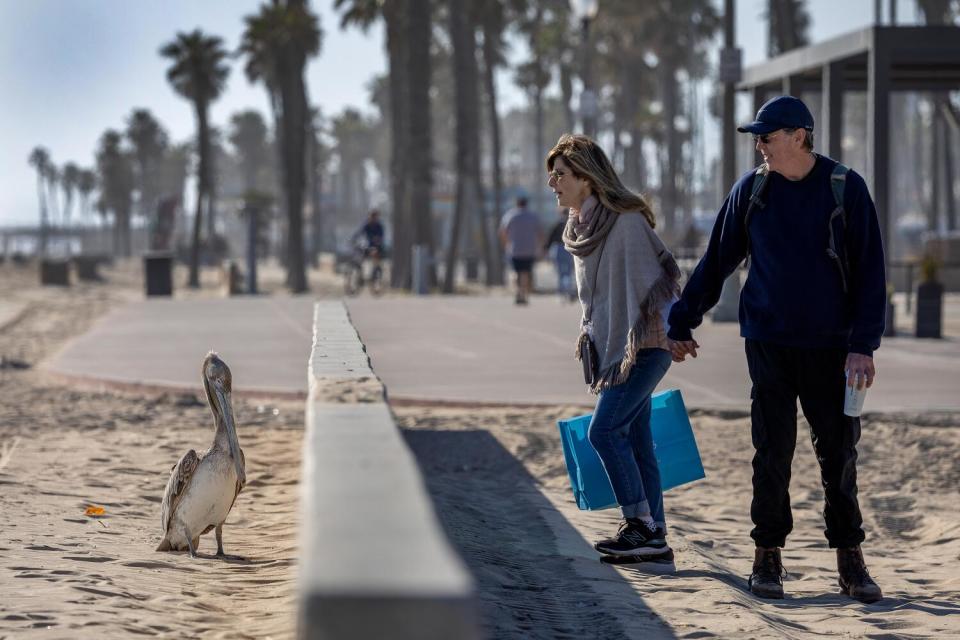
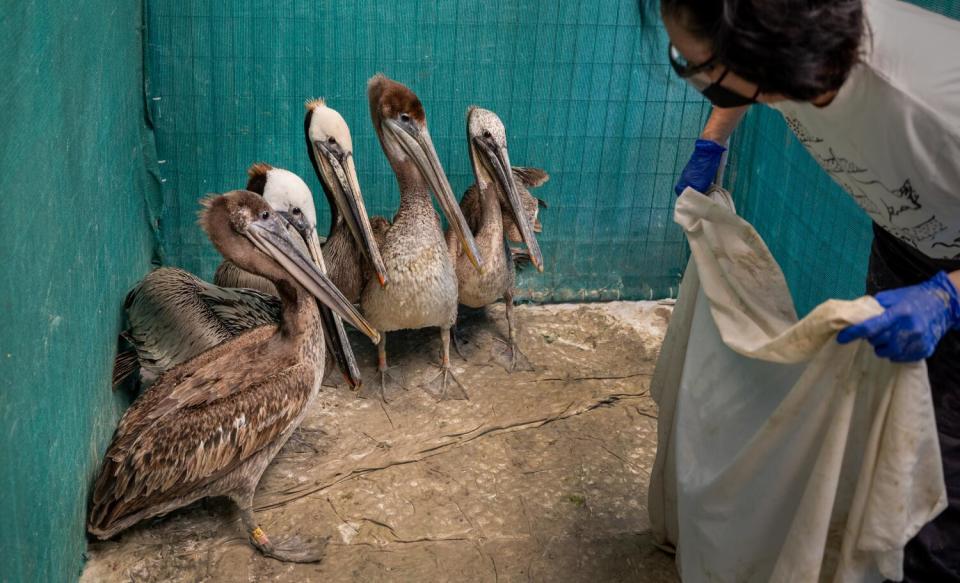
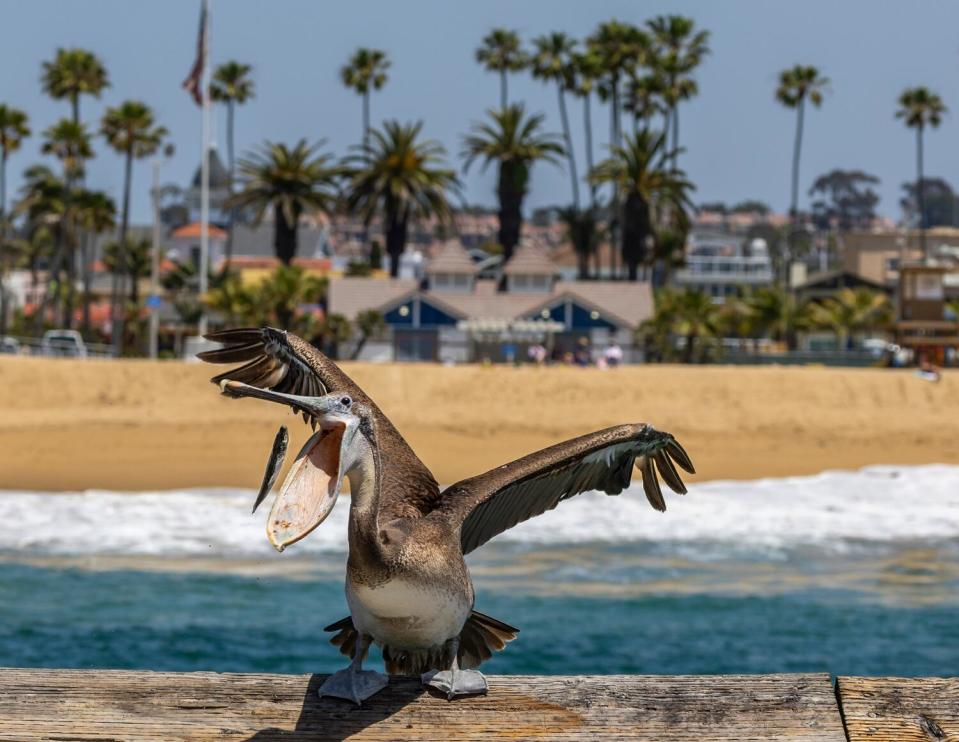
This story originally appeared in Los Angeles Times.

 Yahoo News
Yahoo News 
